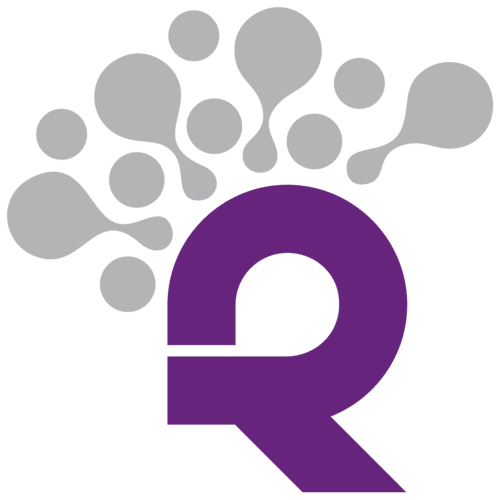This post is also available in: فارسی (Persian)
Specialized human resource skills training | Solutions for human resources
Human resources, when equipped with specialized and up-to-date skills, play an effective role in improving the position of organizations in the market for services and products. On the other hand, not paying attention to the development of employee skills makes the organization vulnerable to powerful and forward-looking competitors. For this reason, specialized human resource skills training is a strategic tool for increasing productivity, reducing risk, and preparing the organization for a digital and changing future. In this article, we have introduced specialized human resource skills training.

Reasons for the need to invest in specialized human resource skills training
With the acceleration of automation, the spread of artificial intelligence (AI), and the digitalization of jobs, many current skills have become obsolete and new needs have been created in the labor market. In such an environment, retraining and upgrading the skills of employees is not an option, but a vital necessity for the survival and growth of organizations. For example, the customer service department in many companies is rapidly moving towards the use of AI-based chatbots, and in the meantime, employees must learn new skills in the field of customer data analysis and complex communication management. Some other reasons why organizations need to invest in specialized human resource training include:
- Increasing employee productivity and performance quality
- Creating a competitive advantage for the organization
- Attract and retain talent and employees who are looking for learning and growth opportunities
- Filling skills gaps that cannot be solved through recruitment or are too costly
- Improving job satisfaction and motivation in work teams
- Increasing the organization’s flexibility against market and technological changes
- Reducing the rate of employee departure from the organization
Human Resources Challenges in Providing Specialized Skills Training
Human resource managers face numerous challenges in designing and implementing training programs. One of the most important challenges is correctly identifying training needs in a rapidly changing environment. Budget constraints, lack of employee time to attend courses, and difficulty in measuring the effectiveness of training are other serious obstacles. Also, in some organizations, employee resistance to learning new skills and change slows down the training process. In such circumstances, human resource management must use targeted and data-driven strategies.

The most important specialized human resource skills training
“Specialized human resource skills training” refers to a set of training programs designed and delivered with the aim of developing employees’ technical, specialized, or operational knowledge and capabilities in specific areas related to their job or industry. In addition to developing basic job knowledge and skills, these trainings are a factor in increasing the depth of expertise, mastery of new tools and technologies, and also preparing for more complex and specialized roles in the organization.
Some of the technical skills training for employees in various fields include the following:
- Training in working with industrial design software such as AutoCAD
- Advanced digital marketing and SEO techniques
- Financial statement analysis
- Project management with methods such as Scrum and Kanban
- SQL database management
- Network security and combating cyber threats
- Learning to work with accounting platforms
- Management of industrial automation systems
- Use of advanced customer relationship management systems
- Sales and negotiation techniques in specific industries
- Statistical quality control and Six Sigma tools
- Specialized supply chain management and logistics
Effective strategies in managing specialized human resource skills training
To be successful in upskilling their workforce, organizations need a coherent and strategic approach. This strategy should be designed based on the organization’s overall goals, from the needs assessment stage to measuring effectiveness. Combining in-house and outsourced training, utilizing technology, and creating a learning culture in teams are among the key pillars of this process. Below, we review the most important strategies for effective training management in this field.
Smart and data-driven educational needs assessment
Training needs assessment is effective when it is based on real data from employee performance and analysis of industry trends. For example, in a company operating in the financial technology (FinTech) sector, performance evaluation data and analysis of failed projects show that the sales team needs to improve their negotiation and market analysis skills. Such information makes the educational planning path purposeful and in line with the organization’s real needs.

Aligning training programs with strategic business goals
Technical skills training for employees should be designed to achieve the organization’s vision and overall goals. For example, if an organization intends to expand into the international market in its five-year plan, language training and familiarization with the business cultures of the destination country should be on the agenda. This alignment ensures maximum utilization of educational investment and prepares employees to play a role in achieving macro goals.
Designing educational content by the organization itself
Many leading organizations design their training content to suit the organizational culture and specific needs of the organization. For example, a manufacturing company in the food industry prepares and implements industrial hygiene standards training courses tailored to its production lines. This approach, in addition to increasing the efficiency of training, also enhances internal knowledge.
Some common formats for this type of content include:
- Educational videos
- Interactive Files
- Specialized podcasts
- Digital textbooks
- Workshops and practical workshops
Outsourcing specialized human resource skills training services
In many cases, especially in emerging specialized skills, collaborating with specialized training companies has many benefits. With professional professors and up-to-date methods, these collections can provide high-quality educational content tailored to the needs of organizations. At the same time, outsourcing saves time and implementation costs.
Using technology in education
The use of online educational platforms, augmented reality, and interactive learning tools makes the education process more engaging and effective. For example, in technology companies, virtual reality-based crisis management simulation courses are held, introducing employees to challenging situations in a safe environment.

Training specialized human resource skills with Raymon services
Raymon Entrepreneurs Companion Company , with its expert team and extensive network of professional connections, is a reliable partner in the field of human resource management. In this complex, we focus on improving the specialized and general skills of human resources, and we offer our educational services in the form of in-person, online, and offline courses tailored to the needs of the labor market. Raymond’s courses are designed by top professors and experts in each field and include training in technical, software, management, language, and soft skills.
Frequently Asked Questions
What topics do human resource technical skills training cover?
They include technical, software, management, language, and soft skills that are designed to suit the job needs of each company and the labor market.
Why should organizations invest in employee training?
Increasing productivity, filling skill gaps, retaining talent, and preparing for technological changes are the main reasons for this investment.
How is the effectiveness of training in the organization evaluated?
By comparing performance before and after training, measuring participant satisfaction, and evaluating the extent to which skills are applied in the workplace.

